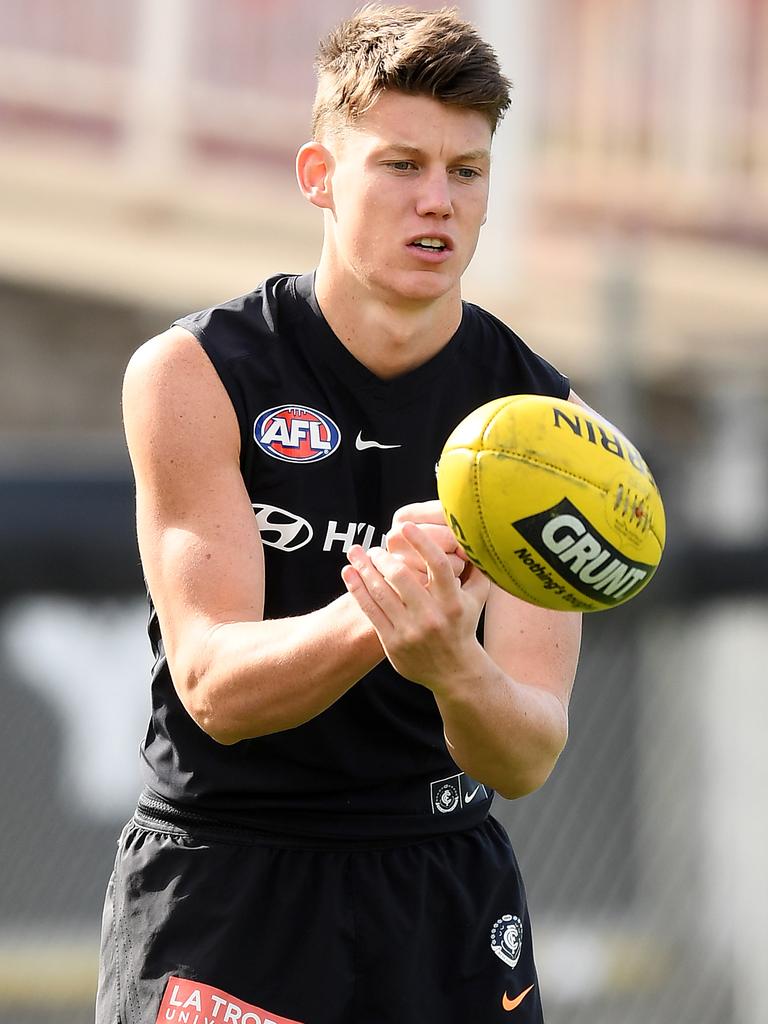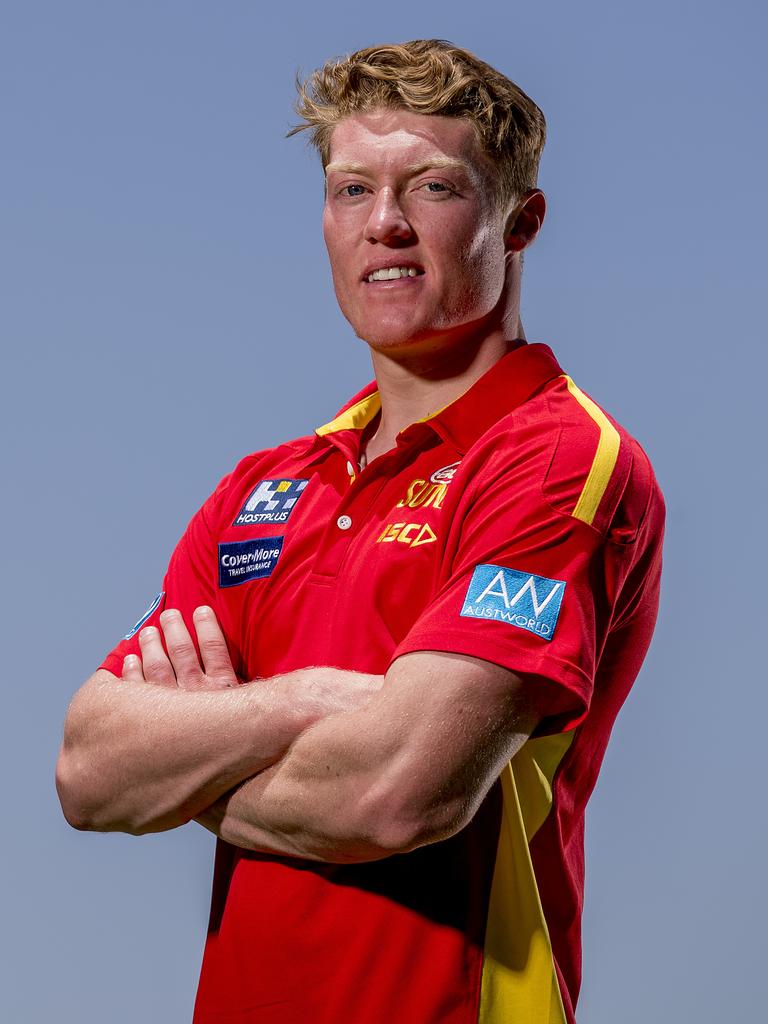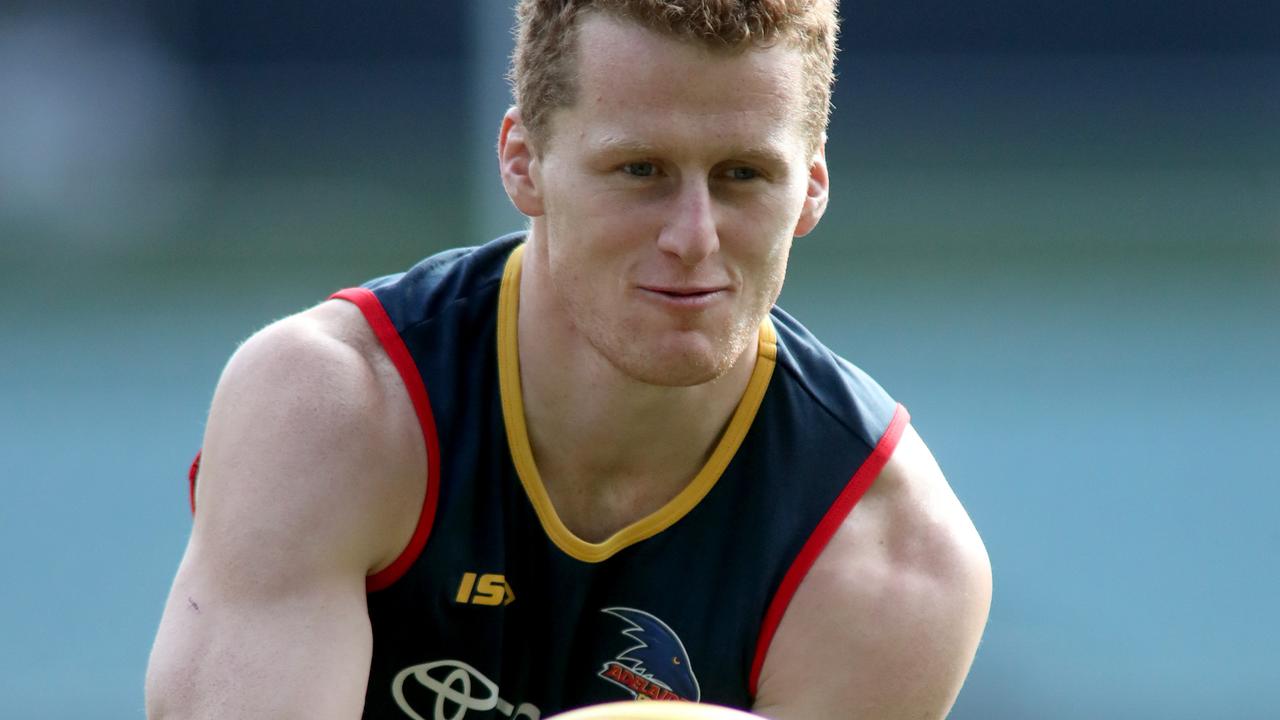KFC SuperCoach lessons from 2019 that can help us in 2020
Some rules, it turns out, are more like guidelines, at least when it comes to SuperCoach. Which SuperCoach myths were busted last year and how do they impact our teams in 2020?
Each season we look to improve our KFC SuperCoach coaching and hopefully get a better ranking or take out our league championship.
To do this we must learn from what happened in the previous year.
As we plunge into picking our teams for this season, taking a moment to look back at what we got right, and wrong, in season 2019 reveals some significant insights that we can use to our advantage in 2020.
PAYING UP FOR A ROOKIE CAN PAY OFF
We have always played by the rule that we don’t want to pay up for the top-priced rookies because they don’t make us as much money as the basement priced players. But rules are meant to be broken and Sam Walsh did exactly that in 2019.
The No.1 pick in the draft played all 22 games and averaged an amazing 86.9 points per game. Not only did he rise in value during the season by just under $200,000, he became a player that could be relied on and many people held him right through the season.
This year we have another midfielder with huge wraps on him in Matt Rowell. Priced at $207,300 just like Walsh was, he should have a big role in the Gold Coast midfield. I had no hesitation in picking him in my starting squad.


OPPORTUNITY KNOCKS
A change in team structure can create opportunities for other players. Coaches who took a chance on starting with risky mid-pricer James Worpel got even more than they bargained for. With Tom Mitchell gone for the season Worpel picked up the slack in the Hawthorn midfield and was a fantastic selection.
So we need to make the most of any misfortune that strikes a star in the pre-season. Any player suffering an injury is terrible, but if you can identify who will pick up that prime role in their team then you could find yourself a bargain.
SOMETIMES THE SMART PLAY IS DON’T TRADE
The aim of the game is to make as much money as we can from a rookie to upgrade to a team of premiums. But we have learnt that sometimes just because a player has stopped making money it doesn’t mean we have to trade them straight away.
Last year we saw a few examples of this with guys like Walsh, Reilly O’Brien and Rowan Marshall rising in value quickly but then continuing to score well. Sometimes we need to just sit back and look at what they are doing and whether you should just keep them for another few weeks.
For example, O’Brien had a Break Even of 95 after Round 11 which led to many coaches trade him out thinking he had achieved everything we needed him to. His next three scores were 104, 181 and 120 then a few weeks later he posted a 149 and a 110.

DON’T PANIC IF A ROOKIE GETS DROPPED
Last season Melbourne dropped popular defensive rookie Marty Hore after his first game, in which he scored a respectable 58. While SuperCoach experts advocate making rookie correction trades early on, Marty showed us that sometimes it is worth hanging on if you have other issues you need to deal with and can make a case he might not be banished forever.
But if you did trade him out before his run of scores in the 80s and 90s a few rounds later the right play was to swallow your pride and get him back into your side.
Hore’s price didn’t change until after his second game (86) and after another 96 the next week he was still available for under $200,000. He went on to peak at $423,200 in Round 14.
SOMETIMES YOU HAVE TO CUT AND RUN
On the other end of the scale was a Gold Coast Sun rookie who we all had high hopes for. Chris Burgess was supposed to be a great cash cow, but it became evident early he just couldn’t score to the level we needed.
After five weeks he was dropped by the Suns and his average was just 37. At that point most of us recognized that he wasn’t going to be the cash cow we wanted, and we needed to admit picking him was a mistake and trade him for little to no extra cash than what we paid for him.
He returned to the team five weeks later and made 14 senior appearances for the season but his value didn’t rise about $200,000 until Round 17 and he never provided a viable on-field option.
This goes against nearly everything we know about this game, but sometimes we need to just bite the bullet and take our medicine.
DON’T GET GREEDY WITH THE LOOPHOLE
If you are going to use the VC loophole and have a double dip at your captain score (if you don’t know how to do this we will talk about it closer to the start of the season), then don’t get too greedy.
On several occasions last season many coaches passed up a score of 120 to chase something higher only to see our captain option fail after being tagged. Sometimes we need to just be happy with what we have and take the points in the bank.
MORE SUPERCOACH TIPS:
KFC SuperCoach Rookie Bible: Every potential cash cow for season 2020
SuperCoach expert jury answer the key pre-season questions
Doctor’s Orders: Five tips before you pick a SuperCoach team
The best SuperCoach mid-price selection from every club for 2020
The one thing that we all do know about SuperCoach is that the rules on which players to pick and when to trade them in and out change each season. Best of luck and hopefully we can all learn from our mistakes of seasons past.

